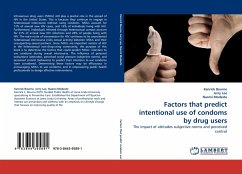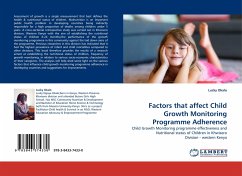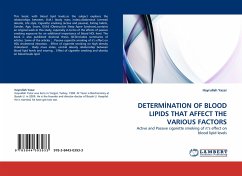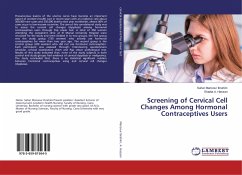Intravenous drug users (IVDUs) still play a pivotal role in the spread of HIV in the United States. This is because they continue to engage in heterosexual intercourse without using condoms. IVDUs account for 12% of annual new HIV cases, and 19% of individuals living with HIV. Furthermore, individuals infected through heterosexual contact account for 31% of annual new HIV infections and 28% of people living with HIV. The main route of transmission for HIV continues to be unprotected heterosexual intercourse (risky sexual activity) between IVDUs and their unsuspecting sexual partners. Since IVDUs are important vectors of HIV in the heterosexual non-drug-using community, the purpose of this book is to determine the factors that could predict IVDUs' intention to use condoms during sexual intercourse. The influence of personal evaluations (attitudes), perceived social pressure (subjective norms), and perceived control (behaviors) to predict their intention to use condoms were considered. Determining these factors may be efficacious in encouraging IVDUs to use condoms, and in empowering public health professionals to design effective interventions.
Bitte wählen Sie Ihr Anliegen aus.
Rechnungen
Retourenschein anfordern
Bestellstatus
Storno








